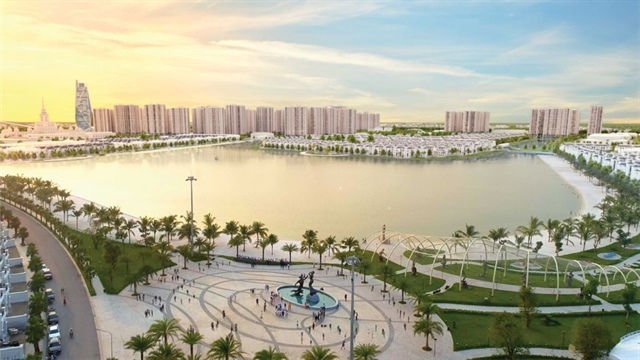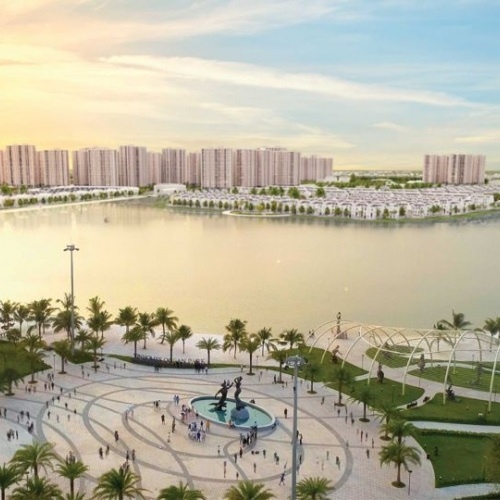|
Vietnam's favorable factors hold promise for real estate growth
According to Savills, foreign investors are increasing their interest in retail and hotels and traditional segments such as residential and offices.
Vietnam positions itself as a promising investment destination for foreign capital and investors due to its favorable macroeconomic factors and the attractiveness of its various real estate segments.

New development Vinhomes Ocean Park in Gia Lam district, Hanoi. Photo: Chien Cong/ The Hanoi Times
|
Nguyen Trong Toan, Investment Manager, Savills Hanoi, made the prediction, adding that Vietnam shows stability not only in its political situation but also in its macro environment.
"The country's economy is enjoying a robust post-pandemic recovery, characterized by low inflation and greater exchange rate stability, which is effectively managed by the government," noted Toan.
In the residential segment, foreign investors are looking for investment opportunities and tend to develop projects under their own brands in the context of tight supply and high demand for housing.
Foreign developers are leveraging their branding, design concepts, construction standards and quality advantages in these projects. As a result, he predicted that the products they develop would find a favorable home in the market, even in the high-end segment.
In the office sector, Savills is seeing increased demand from the energy, manufacturing and professional services sectors, helping keep occupancy rates stable.
Particularly in major cities such as Hanoi, Danang and Ho Chi Minh City, office market trends are creating opportunities for capable foreign investors with products positioned to meet green standards such as LEED, WELL and BREEAM certifications.
As for the Hanoi market, Toan stressed that foreign investors are expanding their investment scope beyond the central districts.
This is an initiative to take advantage of the relocation of administrative and private offices, the development of urban infrastructure and the concentration of population in certain surrounding mega-projects, he said.
In the retail sector, the involvement of major players has demonstrated the importance and attractiveness of the Vietnamese market. Large investors are actively seeking land to develop modern commercial real estate projects focusing on delivering a better consumer experience.
In early February, Central Pattana, a retail property giant and a member of Thailand's leading retail conglomerate Central Group, made preparations to establish a legal entity in Vietnam to tap into this vibrant retail market.

A commercial center of Central Pattana. Photo: Central Pattana
|
Earlier, THISO, a subsidiary of THACO, a multi-industry group engaged in automotive, investment and construction, realized its expansion strategy by opening its third Emart hypermarket in Ho Chi Minh City and announced plans to open the fourth in the north by acquiring a 2.4-hectare plot of land in the West West Lake Urban Area.
According to Savills Vietnam, the hotel sector is also showing signs of recovery. Both hotel occupancy and rental rates have increased in Hanoi and Ho Chi Minh City. Hanoi has seen a 21% year-on-year increase in occupancy, accompanied by a significant 28% year-on-year jump in the average rental per night.
Similarly, rental occupancy in Ho Chi Minh City increased by 18% per annum, with the five-star segment showing the strongest improvement at 61%. The average room rate increased by 14% annually, generating VND2.9 million (US$116.2) per room per night.
The performance of the hotel segment has been steadily improving, and many foreign investors are highly appreciative of its recovery potential and confident in the growth prospects of the Vietnamese hotel market. Many foreign investors believe that this is an opportune time to enter the market, Savills said.
Toan added that in the past, foreign investors with substantial financial resources focused on investment opportunities that gave them control rights.
However, they are now showing greater openness to various forms of investment, such as financial investment, capital contribution and business cooperation, to maximize the potential of the Vietnamese market, he added.
In addition, many foreign investors have expanded their project locations after conducting market research, particularly exploring investment opportunities outside the major cities, Savills said.
Hanoi Times
|